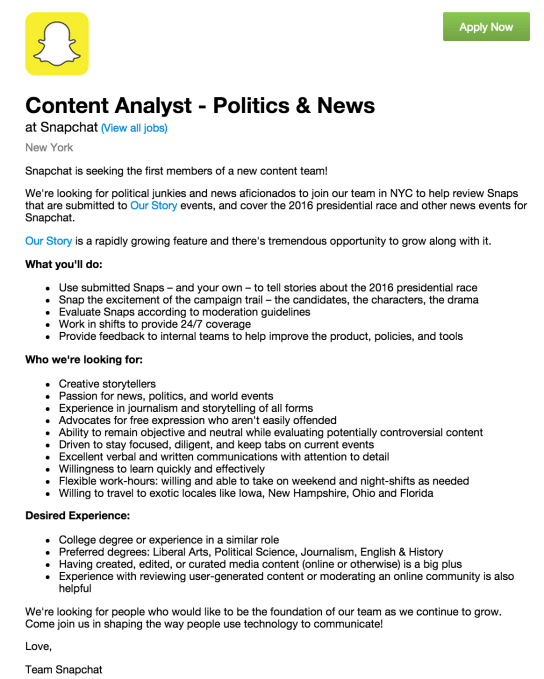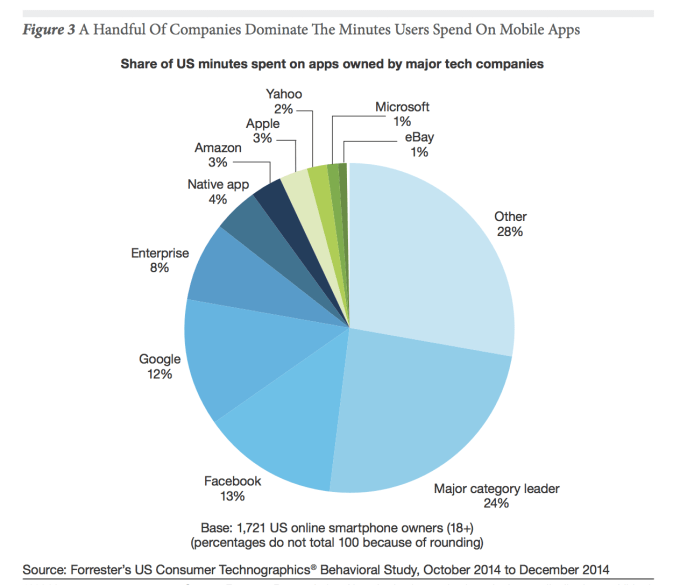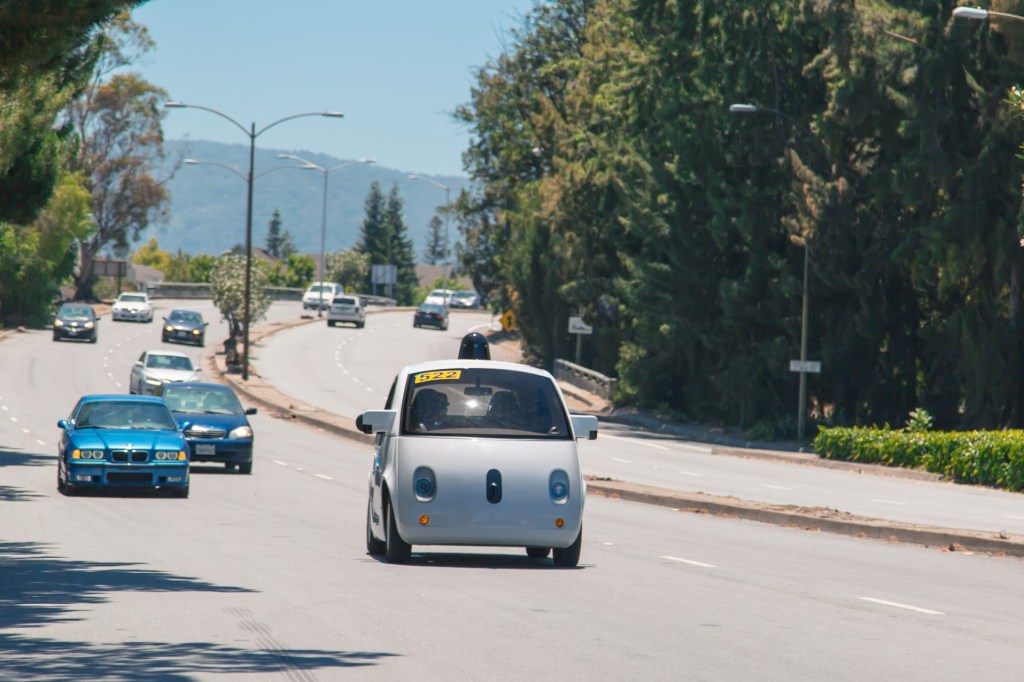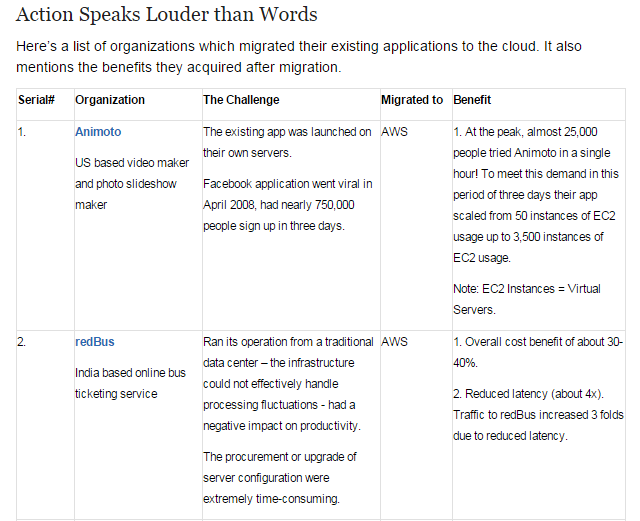Sections
The Digital Enterprise Opportunity
[avatar user=”malm” size=”small” align=”left” link=”file” /]
Aaron Levie CEO of box.com published this essential TechCrunch posting on what he terms the “trillion dollar Enterprise Software opportunity“:
Outside of the tech industry, an unmistakable trend is sweeping the business world. … Companies in industries as far ranging as transportation, pharmaceuticals and manufacturing are facing the pressures of digital disruption. As we move irreversibly into an economy defined by new competitive parameters, incumbents saddled with legacy cultures, business processes, and technology are stuck in the past. Others, like GE, Ford, Walmart and Deloitte, have realized that there’s no way to compete in the future if they don’t adapt now.
Levie echoes the thoughts of many astute business observers by suggesting that almost every industry vertical is being disrupted by digitisation and many jobs are becoming software-enabled. Businesses urgently need to understand and leverage advances in technology if they are to thrive and remain competitive as recently highlighted in this blog and underlined by Levie thus:
The age of analog is over, and this puts many businesses in the unavoidable position of having to redefine the very products they’ve built their companies around (and the business models that go along with them). … Competitive use of technology will determine the winners and losers of every legacy sector.
He points out that the opportunity lies in the startups that will reshape the Enterprise IT landscape of the future with SMAC- based (Social, Mobile, Analytics, Cloud) propositions. Furthermore they will do it not just with superior technology but through business model innovation by routing around corporate IT budget blockers:
There is a massive opportunity for startups to define a new era of work, and it’s not just the products and platforms they build that will look completely different, but in some cases, their business models as well. Zenefits is one of the fastest growing SaaS businesses of all time, and it’s achieved this without taking budget from the IT department, but instead finding a completely separate revenue source from insurance brokerage fees. And as more business models emerge, enterprise software spend won’t be constrained by IT budgets on its path to a trillion dollars.

Manufacturers and Devices
- John Lewis have started selling unlocked smartphones online. Eventually they will also stock them in their stores and offer Vodafone contracts:
A curated selection of top handsets from the likes of Samsung, Sony, LG, HTC, Motorola and Microsoft are available online right now, all unlocked. SIM-free iPhones will be added to the roster in early July, when they’ll also begin to be stocked at John Lewis’ flagship Oxford Street store.
- Chinese OEM Meizu have announced an Ubuntu flavoured version of the MX4 available via invitation online only. TNW went hands on with the device and although fully aware of the potential of “Ubuntu in your phone” felt it would take time to adjust to the product and that it still needed more work.

- Wireless charging looks set to go mainstream off the back of the latest Wireless Power Consortium spec which aims to achieve parity of performance with conventional charging.
The Wireless Power Consortium (WPC), the driving force and leader in the global adoption of wireless power technology, today announced that the latest version of the Qi specification now makes it possible to deliver 15 watts of power to mobile phones that support wireless fast charging. This Qi fast charging feature enhances the charging experience by decreasing the time required to wirelessly charge devices
Smart Cases
- Hackaday profile a smartphone case that houses an integrated keyboard.

- Here’s a video of the case with a Samsung Galaxy Note 4:
Google and Android
- GMail Undo Send support is now official. Note that:
Undo Send is disabled by default (which doesn’t make much sense), but you’ll eventually see it as an option in your “General” Gmail settings tab in the coming weeks. If you’ve already enabled it from Gmail Labs, however, it’ll be turned on by default.
- The ability to yank back emails you didn’t want to send has unsurprisingly proved popular. Undo Send lets you do so for up to 30 seconds after the event.

Apps and Services
- The BBC have launched a news app aimed at the young called NewsBeat. It’s an interesting idea but will face tough competition from other high profile online propositions:
The design consists of three feeds — Latest, Popular and Topics — and individual news reports are shown as cards with large, bold photos. The BBC says it’s aiming the app at 16- to 24-year-olds and will be focused on entertainment news, interviews and social trends. While it’s true that millennials spend a lot of time on their phones, the broadcaster could have a tough time drawing their attention away from apps like Snapchat.

- As if to underline that challenge, Snapchat are starting to hire “content analysts” in the run up to the 2016 US presidential race in a bid to extend their reach into news aimed at a younger demographic.

- One of the key issues that any new mobile service proposition faces is how to break through the reality of current smartphone usage patterns. Survey data highlighted by Forrester suggests that although users spend 85% of their time on smartphones in apps, nearly all of that is spent on just their top five apps. And that nearly a third of all time spent within apps is in GAFA quartet properties:

- There are some uncomfortable and stark consequences for brands as a result:
Based on this data and other findings in the new report, Forrester advises businesses to design their apps only for their best and most loyal or frequent customers – because those are the only one who will bother to download, configure and use the application regularly.
- Adobe’s Matt Asay tweeted a link to a post on his thoughts on the mobile app graveyard:
26% of smartphone apps are only used once. Avoid the app graveyard: http://t.co/X25NpuFFEI #CannesLions pic.twitter.com/uI0M9kMD8o
— Adobe (@Adobe) June 24, 2015
- Even so, there is no guarantee of continued hegemony for the social media giants particularly if concerns around online privacy and data security are not addressed. This TechCrunch post suggests a lot of young people who use social media are somewhat conflicted about the use of their data and apparently would not require surprisingly little further incentive to drop out:
survey data shows that 55 percent of young people would eschew social media entirely “if they could start fresh.” Additionally, if major breaches of their privacy were to continue, 75 percent of young people said they were at least “somewhat likely” to deactivate their personal social media accounts, with 23 percent saying they were “highly likely” to do so.

- A TechCrunch reviewer waxes lyrical about Amazon Echo suggesting it “proves the viability of voice-based home computing” and will be even more useful when integrated with essential services like those provided by Google. However this TNW reviewer of the same product holds the opposite view driven primarily by privacy concerns around hidden snooping:
Much as I like the convenience of voice control, the lack of clarity about when and where voice recordings are stored or transmitted to cloud storage has really put me off. … Sometimes, no matter how useful a new product is, you just can’t get over ‘the creepy factor.’
Asia
- Domestic robot Pepper was launched in Japan to considerable excitement last weekend by SoftBank. They have now revealed the extent of investment underpinning the venture from both Alibaba and Foxconn:
SoftBank has revealed that Alibaba and manufacturer Foxconn have invested $118 million each in its robotics division.

- Interesting post from Google’s APAC blog which highlights how dramatically Asia has leapfrogged the West in mobile usage:
Smartphone owners in Asia use their phones for searching, shopping, and maps more often than their Western counterparts. For instance, 31% of Thai smartphone owners shop on their phones — a rate far exceeding that of the US (10%) or UK (7%).
Cloud, Infrastructure and DevOps
- The Bank of England’s CIO John Finch provided an interesting insight into their IT strategy at the Cloud World Forum in London Olympia this week. He’s not a fan of public cloud but does understand the importance of consolidation and virtualisation to realise cost and flexibility benefits. For Finch, the ideal solution is therefore private cloud which was very much in evidence at the event with the likes of IBM heavily pushing OpenStack. The likes of Amazon and Microsoft were conspicuous by their absence.

- By way of contrast, this handy InfoQ post from Basant Singh explains why you should be migrating your business apps to public cloud. The author points out the benefits of cloud, namely elastic capacity, greater agility, lower cost, easier disaster recovery and reduced downtime. He then moves on to examine what sort of apps would benefit most from migration before finishing with a list of companies that did conduct migrations and what benefits they derived from the process:
- These two perspectives reflect two fundamentally different mindsets which overlap in large part with the world of ITIL and DevOps evangelists. InfoQ compared the two approaches to IT and provided this critique of ITIL from an exasperated DevOps practitioner:
For every mention of “iterative” or “feedback,” there are ten mentions of “plan” or “planning. Notably, the word “experiment” appears only a few times in Service Strategy and not at all across the remaining volumes.”
- DevOps does appear to have a better outlook longer-term with its emphasis on software skills as we move to the era of software-defined data centres. Ultimately, though, it’s pointless insisting on one size fits all. The reality is that across the wide spectrum of Enterprise use cases, there’s still plenty of room for both mindsets:
Some business needs, and their supporting applications, need an emphasis on innovation and speed of change: they need a Nimble approach. Other business needs require stability and very low risk: they need a Conservative approach.
- This amazingly useful github resource provides an exhaustive enumeration of all the various free tiers available from cloud service providers. It’s essentially Free Service Discovery as a service.
- Redis Labs just secured a Series B funding round that will allow them to continue advancing the popular Redis NoSQL database. Investors were no doubt well aware of the longer-term potential:
Redis Labs’ performance … makes it ideally suited for use cases like real-time analytics and ingesting Internet of Things data.
Big Data
- According to McKinsey by as soon as 2018:
the United States could face a shortage of 140,000 to 190,000 “people with deep analytic skills” as well as 1.5 million “managers and analysts with the know-how to use the analysis of big data to make effective decisions.”
- Here is one insider view of the best US-based courses to take to fast track you into Data Science:
- TechCrunch post on “Cloud Giants and the War for Customer Data” is basically a thin cover for a piece talking up the undeniably rosy prospects of Apache Spark as the emerging big data platform of choice for large brands:
Apache Spark’s effect on the data landscape is akin to the leap in Internet applications enabled by the move from dial-up to broadband. … Think real-time communication, streaming music and video, massive multiplayer gaming, and other bandwidth-intensive applications. When it comes to data and delivering information to business people who need it, Spark enables a similar quantum leap in information access.
- Whether you choose Spark or Storm or just Splunk, you need a data pipeline to analyse how your customers are interacting with your mobile app properties. Without a good mobile analytics strategy underpinned by a system architecture and corresponding data analysis resource, your chances of making any impact on the mobile app status quo highlighted above are slim to none:
As a developer—whether retailer, game maker, or financial services company—your primary goal is to become an essential part of your users’ app-happy day. And your only hope to get there is by using data. Lots and lots of data. … While a brand might be tempted to shoot for one of the top slots, those spots tend to go to Facebook or messaging apps such as SnapChat. And, to channel Senator Lloyd Bentsen in his vice presidential debate with Senator Dan Quayle, “You’re no Facebook.”

Artificial Intelligence and Machine Learning
- Very good online lecture from MIT’s Artificial Intelligence degree course on the derivation of the backpropagation algorithm from first principles. The lecturer, Patrick Winston, starts from a simple model of a neuron to build a 1D neural net and then uses partial differentiation and the chain rule do demonstrate that by employing a sigmoid function for the transition, it becomes possible to show how each layer of the net is only dependent on the layer before it:
- Fascinating inside glimpse into DeepMind and how Google have aggressively leveraged the groundbreaking work of its UK artificial intelligence acquisition into its internal systems:
“Across Google we use what we call Tool AI or Deep Learning Networks for fraud detection, spam detection, hand writing recognition, image search, speech recognition, Street View detection, translation.
Sixty handcrafted rule-based systems have now been replaced with deep learning based networks. This gives you a sense of the kind of generality, flexibility and adaptiveness of the kind of advances that have been made across the field and why Google was interested in DeepMind. “
- It’s unclear whether the Google Brain team is using the same technology but they’ve published a paper describing how they built a “neural conversational model”. They fed it a corpus of movie transcripts and came up with some disturbing results:
Human: what is the purpose of life?
Machine: to serve the greater good.
Human: what is the purpose of living?
Machine: to live forever.

- The young may be in two minds about social media and invasion of privacy but not, it appears, about robots based on responses to the US-based high school Robots4Us initiative. They don’t seem to have any especial fear of the singularity:
Instead of the dystopian narrative that usually accompanies robotics, each student envisioned a collaborative space for robots and humans to coexist. Turns out, the generation that will most likely hang out with a bot at home isn’t robophobic at all.
Amazon has launched a new machine-learning system that uses Artificial Intelligence (AI), to bring up more helpful and newer reviews at the top of the list. The new machine-learning algorithm will start to rank customer’s reviews and 5-star ratings system.
- With AI increasingly being used to assist decision-making, we need to ensure we don’t simply blindly accept the results without any evidence-based consideration of how they were derived. This requires a degree of reasoning capability (rationality) on the part of the AI to help understand the results context which is much harder than simply building a neural network that seems to generate reliable answers without understanding how it is generating them:
If we are going to have intelligent machines in our workplace that are providing us with answers, predictions and recommendations, we have to ask of them exactly what we would ask of any other co-worker. We have to ask them to explain themselves so we can productively work with them.
- This robot bricklayer called Hadrian (like the wall) is made in Australia and can “build a house in two days“:

Software Development
- Handy InfoQ overview of how Large-Scale Scrum or “LeSS” works. It’s essentially an extension of the Scrum concepts and structure across the entirety of a product release. And like its narrower parent, LeSS emphasises a single backlog, proactive product owner and continuous integration albeit at the product level with separate “feature teams”:
Because LeSS emphasizes a whole-product focus, and there is only one Product Backlog shared by all teams (not a per-team so-called “Product” Backlog), there is only one overall Product Owner.
- CodeWars is another Checkio-style competitive community programming proposition albeit about more than just Python with languages like C#, Haskell and Clojure supported. One fun element is that you have to pass a couple of basic questions before being allowed to register. The questions once you’re inside seem interesting – the first one is about vampire numbers and the second on Complimentary DNA. The company behind it has received about $1million of angel funding over the last two years.
Wearables and the Internet of Things
- The much-anticipated Jawbone Up 3 smart fitness band is finally available in the UK:
The “Black Diamond” version is available now (the “Silver Cross” version will follow later this summer) for £129.99 and comes with one key hardware feature to separate it from the cheaper Up2: heart rate monitoring.
- Handheld gene sequencer for under $1000:
$1000 gene sequencer in the palm of your hand. Whoa. #SolidCon pic.twitter.com/E1faFrEXhT
— Bill Danon (@Volturnus) June 24, 2015
Cars
- Terence Edent is test-driving an all-electric BMW i3. He likes the car but not its integrated web browser which gets something of a roasting in his write-up:

- Google’s latest self-driving car prototypes are now out on the roads of Mountain View. They have a top speed of 25mph and “safety drivers” who can operate manual override. It’s not clear if a safety driver was involved in this widely reported incident involving a near-miss between two self-driving cars from different companies which highlights the level of scrutiny Google can expect from mainstream media should any of their vehicles be the cause of an accident.

- The first 3D printed car:
The "first 3D printed supercar" revealed by @CzingerKevin on #SolidCon #superlight #supersmart #supergreen pic.twitter.com/on7zbwnmVP
— Michael Schmidtke (@michaschmidtke) June 24, 2015
Hiring and Work
- NYT on the increasing use of algorithmic decision support tools for hiring. They offer employers the potential to improve upon “gut instinct” with a more data-led approach that avoids human interviewer bias in the hiring process. One key benefit of doing so is greater diversity in the workplace:
A new wave of start-ups — including Gild, Entelo, Textio, Doxa and GapJumpers — is trying various ways to automate hiring. They say that software can do the job more effectively and efficiently than people can. Many people are beginning to buy into the idea.
- The use of contractors to flexibly fill resource needs is an increasingly normalized approach and a key characteristic of Exponential Organisations. This NYT piece suggests that introducing a variability in workforce that might not be such a good idea for businesses where a strongly aligned customer service experience is critical. The only way to ensure that is an ‘old-fashioned’ standing force of loyal, motivated and trained employees:
The on-demand companies that have embraced the old-fashioned employee model all say they aim to deliver an experience that wows customers. The best way to do that, they say, is to train and systematically deploy their workers — a practice that can be accomplished only with actual employees.
- It’s something of a shibboleth that cross-functional teams are better than silo’d ones. Maybe so but according to HBR, 75% of them are “dysfunctional” nonetheless.
Startups
- The tech industry is “in denial” and the current frenzied tech bubble is “about to burst”:
Entrepreneurs and their investors are deviating from more traditional valuation and performance metrics to more unconventional ones. Another cause cited for increasing valuations is the trend of protections for late investors that cause valuations to inflate further. The combination of a number of these factors has put the sector into a state of artificial valuations.
- All the more reason to look to bootstrap your own startup without recourse to funding as ex-Facebook employee Perry Tam did over six years to build Storm8 which now has 250 employees:
Both VC-backed and bootstrapped companies must tightly manage cash flow, particularly in the early days through the growth stage. But bootstrapped companies need to be even more financially prudent, as their thin profits are the only funds for growth. Compared to most VC-backed companies, a self-funded startup needs to be relentlessly frugal with its spend on things that don’t contribute to the bottom line (extravagant office space and decor), and must invest extra on the things that do contribute (employees).
- If you do bootstrap, TNW explain why you should rely on your own resources and not tap friends and family for funds.
Society and Culture
- Aubrey de Grey controversial gerontologist and transhumanist believes that anyone under 54 today will be able to delay the onset of the ageing process based on current tech alone. If de Grey has his way, greatly extended life expectancy will be the next step. It remains to be seen how many want to extend normal human lifespan as opposed to remaining fit and healthy throughout a reasonably normal length life:
Based on knowledge and technology we already have, de Grey reckons that within six to eight years we will find a way to delay the ageing process in 60 year olds so that they do not feel 60 until they are actually 90.
- As talk of Grexit looms, this grim Vox opinion piece outlines the harsh reality for a country approaching “Desperate O’Clock”, namely that keeping it on EU life-support or giving it a graceful way out fundamentally isn’t in the interest of anyone that has any power within Europe. If you buy the logic of the analysis, Greece’s EU future is all used up and things are going to get even worse before dawn than this its ‘darkest hour’. The implications are potentially more serious than many realise regardless of the result of the referendum:
The country’s failings are structural, not just fiscal. Default and Grexit will only aggravate those structural failings, not only immediately, but also in the medium-term. And having a failed state in such a pivotal geographic location as Greece’s poses significant geopolitical risks.
- The cost of living pressure on many living and working in London is creating a “Londexit” made up of those who’ve had enough and decided to move out. Cory Doctorow and his family are among their number. He outlined his reasons why in this blog post:
London is a city whose two priorities are turning itself into a playground for the most corrupt global elites who are turning neighbourhoods into soulless collections of empty, high-rise safe-deposit boxes in the sky; and continuing to encourage the feckless, reckless criminality of the finance industry (these two facts are not unrelated).
- Doctorow’s comments echo a recent powerful Rowan Moore piece in the Guardian which describes a “city that is eating itself” with investment property algal bloom leaving ever less space for social housing and relentless gentrification extending into the heart of impoverished areas like Brixton:


- In the interests of balance though, clearly not everyone shares the same view:
The media this week: "Why everyone's leaving London". Yeah, whatever. pic.twitter.com/h9Eywwld7J
— Barney Stringer (@BarneyStringer) June 30, 2015
- Radical beliefs and violent hatred are back in the news and exercising a lot of commentators and politicians. It is therefore timely and sobering to be reminded by this new research covering Nazi Germany that it is possible for a totalitarian regime to reverse decades of supposed progressivism within a relatively short period of time and effectively teach an entire population to hate through industrial scale organised indoctrination within the corresponding education environment. Once imbibed, that hatred appears to hang around for the long-term. It highlights the crucial role of family and wider society in instilling and robustly encouraging a skeptical mindset:
in the case of Nazi Germany, subjecting an entire population to the full power of a totalitarian state was extremely effective in instilling lasting hatred. Extremist views are still three times higher among Germans born in the 1930s than those born after 1950. However, family and the social environment can isolate young minds from the effects of indoctrination at least to some extent.
- Amidst the gloom, a moment of hope in Barack Obama’s remarkable table-turning interview of David Attenborough. The great communicator of the natural world is clear in his assessment of how to rein in climate change based on a lifetime of observation – a twin-pronged approach involving women’s education to reduce population growth and a ‘moon landing’ scale 10-year program to wean humanity off fossil fuels and onto renewables. At least the President of the US has the grace to listen.


